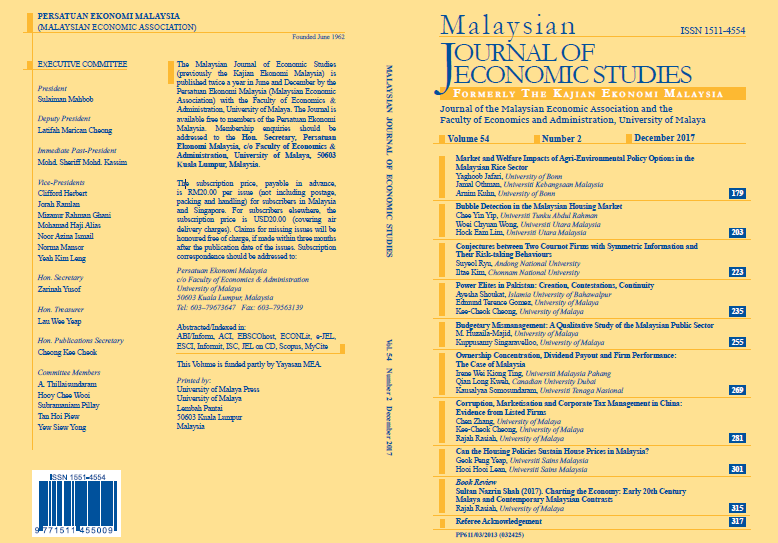Can the Housing Policies Sustain House Prices in Malaysia?
DOI:
https://doi.org/10.22452/MJES.vol54no2.8Keywords:
Developer interest bearing scheme, house prices, housing policies, Malaysia, mortgage interest tax reliefAbstract
In addition to economic factors, this paper examines the impact of housing policies in sustaining house prices in Malaysia at both aggregate and disaggregate levels. By using autoregressive distributed lag (ARDL) framework, we develop a model of house price determination with a focus on two major housing policies–mortgage interest tax relief (MITR) and Developer Interest Bearing Scheme (DIBS). Although aggregate house prices do not react to any economic variable in the long run, it responds positively to interest rate and DIBS in the short run. At the disaggregate level, population and housing stock influence house prices in the long run. Nonetheless, MITR and DIBS have a statistically significant positive impact on the price of high-rise houses. We conclude that while demand and supply variables are important determinants of house prices in the long run, house price changes are affected by housing policies in the short run. For policy recommendation, we suggest to strictly prohibit DIBS to ensure a stable growth in the housing market. Besides that, MITR should be implemented to ensure housing affordability and to stimulate the housing market during recession.







